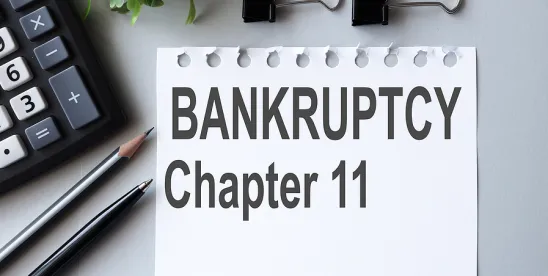You have just received word that a customer of yours has filed bankruptcy. Worse, you are reminded there are outstanding invoices for that customer (now a bankruptcy debtor) and the Bankruptcy Code’s automatic stay prevents you from demanding payment.
You dig further and learn that you are now the holder of general unsecured debt where the amount recovered on general unsecured debt can vary wildly; moreover, as one of many creditors, you must now wait for months or even years for a plan to be proposed and confirmed before you can start to recover what is usually just a fraction of what you are owed. But are you really out of options for receiving a significant payment now?
Your relationship with your customer can tip the scale and timing of recovery in your favor. In Chapter 11 bankruptcy cases, debtors may request authorization from the court to pay creditors they deem “Critical Vendors” for pre-petition debt before a bankruptcy plan is proposed or confirmed. See In re Caesars Ent. Operating Co., Inc., No. 15-01145, 2015 WL 302748 (Bankr. N.D. Ill. Jan. 16, 2015).
Critical Vendors are better known as vendors that debtors rely on for the success of their business. They may provide a unique good or service to the debtor or are the biggest supplier of certain goods or services to the debtor. They are crucial to the business and not easily replaceable. Without them, the debtor would be unable to successfully reorganize in bankruptcy. In that regard, maintaining relationships with Critical Vendors are essential to a debtor in order to maximize recovery for all creditors.
Critical Vendor status is designed to entice both the unsecured creditor and the debtor to maintain that relationship during the bankruptcy proceedings. A debtor will pay the Critical Vendor a portion of its pre-petition claim in exchange for the vendor (you) entering into an agreement with the debtor, on favorable trade terms, to continue to supply or service the debtor through the duration of the bankruptcy case. The agreement, with the court’s blessing, will typically permit the debtor to timely pay the critical vendor for its pre- and post- petition claims. Under the Critical Vendor designation, the vendor has the potential to recover all or a substantial portion of its pre-petition claim.
Understanding your relationship to the debtor as soon as it files bankruptcy is “critical.” The earlier the better. A knowledgeable attorney can analyze the circumstances and, if they warrant, advocate for your status as a Critical Vendor and for favorable terms in the corresponding trade agreement.




 />i
/>i

